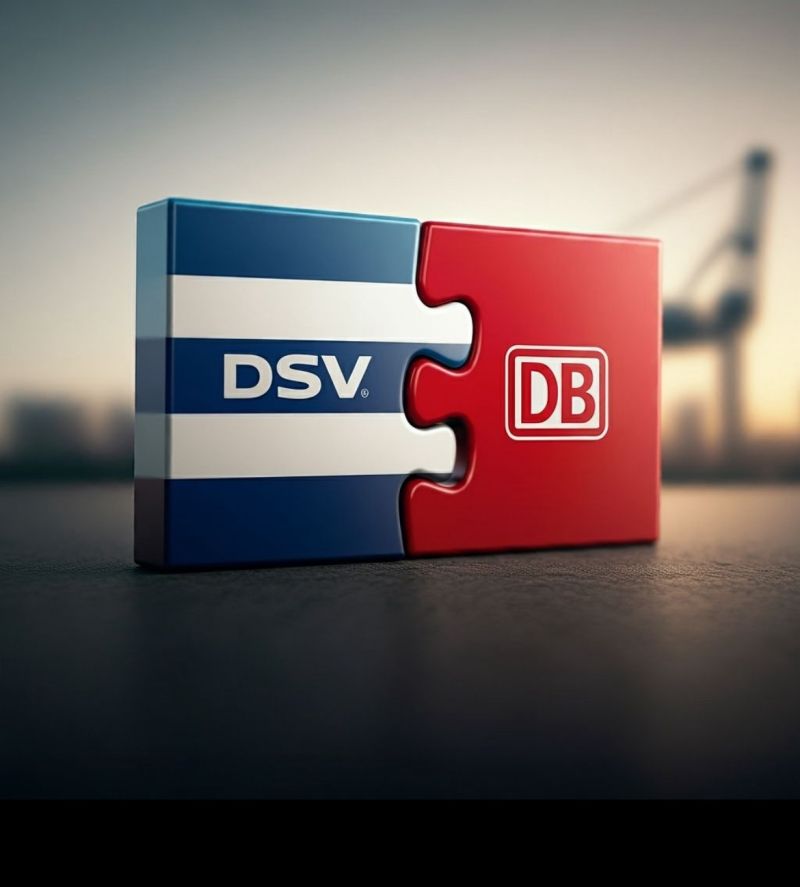The acquisition of DB Schenker by Danish logistics giant DSV is set to transform the global logistics market, creating ripples across the courier industry. This merger presents both opportunities and challenges, particularly for small and medium-sized courier businesses looking to stay competitive. From improved efficiency and cost savings to enhanced technological innovation, the DSV-DB Schenker acquisition could reshape how courier companies operate. In this article, we explore the impact of this major acquisition and how your delivery business can adapt to thrive in the changing landscape.
Timeline and Closure
The €14-billion acquisition is a major strategic move that has taken several years to finalise. Announced in early 2023, the deal was subject to regulatory approvals and extensive negotiations, reflecting the scale and complexity of such a significant merger. The transaction officially closed in mid-2024 after receiving clearance from various global regulatory bodies. This lengthy process underscores the scale of the integration and the careful planning needed to align the operations and strategies of both companies.
Why the Merger Happened
The primary motivation behind the merger is to create a logistics powerhouse with an enhanced global reach and a more comprehensive service offering. By combining DSV’s expertise in air and sea freight with DB Schenker’s strong presence in rail logistics, the merger aims to provide a more integrated and efficient global logistics network. This consolidation allows both companies to leverage their combined resources and capabilities to meet the growing demand for streamlined, cost-effective logistics solutions.
The merger also represents a strategic move to gain a competitive edge in the rapidly evolving logistics industry. With increasing pressure from e-commerce and global supply chain disruptions, the merger allows DSV and DB Schenker to offer more robust solutions, including advanced technology and expanded service options.
For DSV Clients: Clients of DSV can expect enhanced service offerings and improved global connectivity. The integration of DB Schenker’s rail logistics capabilities will strengthen DSV’s ability to offer multimodal transport solutions, potentially leading to more efficient and cost-effective logistics.
For DB Schenker Clients: DB Schenker’s clients will benefit from DSV’s extensive air and sea freight networks, potentially gaining access to new markets and improved service options. The merger will likely enhance the overall service portfolio and operational efficiencies, providing clients with a more comprehensive suite of logistics solutions.
Impact on the Industry
The merger is set to shake up the logistics industry by creating a dominant player with a vast global network. This could lead to increased competition among other logistics providers, as smaller and mid-sized companies will need to adapt to maintain their market share. It will also drive innovation as companies strive to differentiate themselves and offer value-added services.
For smaller courier companies, this means an opportunity to focus on niche markets or specialised services that larger players might overlook. By leveraging advanced technology and enhancing customer service, delivery businesses can capitalise on the shifting dynamics and attract clients looking for personalised, reliable solutions.

How Can Your Delivery Business Benefit?
- Enhanced Efficiency and Cost Savings: With DSV expanding its logistics capabilities, the consolidation may lead to better rates and more efficient operations. You can leverage these changes to negotiate better deals and pass on savings to your customers. For instance, you might find opportunities to reduce your shipping costs or improve your service efficiency by aligning with these new networks.
- Stay Competitive: The merger will likely increase competition among logistics providers. To stay ahead, focus on what you do best—personalised service and reliability. Invest in technology to offer real-time tracking and data-driven insights. Companies like FedEx have demonstrated how technology can enhance service offerings and streamline operations. Adopting similar solutions can help you stand out in a crowded, and highly competitive, market.
- Leverage Technology: DSV’s acquisition might bring advancements in logistics technology. For example, if DSV integrates new tracking and route optimisation tools, these could become industry standards. Stay updated on these developments and consider how adopting similar technologies could benefit your operations. Implementing advanced tracking systems or intelligent reporting tools can make your services more attractive to potential clients.
Conclusion
The DSV-DB Schenker merger is a landmark event in the logistics industry, promising a more integrated global network and enhanced service capabilities. While it brings potential benefits, such as improved efficiency and expanded service options, it also creates a more competitive landscape. By staying informed and adapting to these changes, you can leverage the new industry dynamics to your advantage and continue to grow your business.
Reach out to us at Metafour for guidance on how to leverage these industry shifts to your benefit. We’re here to help you turn these changes into opportunities for growth.
Contact
- Email: sales@metafour.com
- Phone: +44 207 912 2000
Sources:
- Bloomberg. (September 2024).
- Logistics Management. (April 2023).






